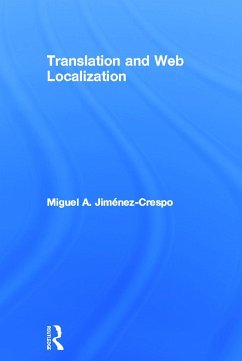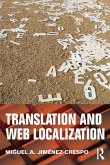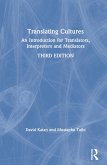'Websites today are expected to function as global communication platforms, yet web localization, as the very enabler, remains under theorized in Translation Studies. Addressing this critical gap, Jiménez-Crespo convincingly presents an integrated approach to web localization as a communicative, textual, cognitive and technological process.' - Minako O'Hagan, Dublin City University, Ireland
'An important contribution to the field of web localization research.... [This] book is of very high importance for all those working in the fields of translation studies.' - LINGUIST
'In brief, this is a good guide for students or for practitioners that want to have in one book an overview of translation theories, localization concepts and web localization research from where to plan their research and find key references. Also, this book could be insightful for practitioners from other fields (including MT) that might, as the authors says, "dismiss translation as a less complex stage, reducing it to an equivalentreplacement operation" (p. 136) and want to look at the world of TS and empirical research in this particular area, in order to understand the theories that have shaped, even if not overtly, the localization industry.' - Ana Guerberof Arenas, Machine Translation
'An important contribution to the field of web localization research.... [This] book is of very high importance for all those working in the fields of translation studies.' - LINGUIST
'In brief, this is a good guide for students or for practitioners that want to have in one book an overview of translation theories, localization concepts and web localization research from where to plan their research and find key references. Also, this book could be insightful for practitioners from other fields (including MT) that might, as the authors says, "dismiss translation as a less complex stage, reducing it to an equivalentreplacement operation" (p. 136) and want to look at the world of TS and empirical research in this particular area, in order to understand the theories that have shaped, even if not overtly, the localization industry.' - Ana Guerberof Arenas, Machine Translation









